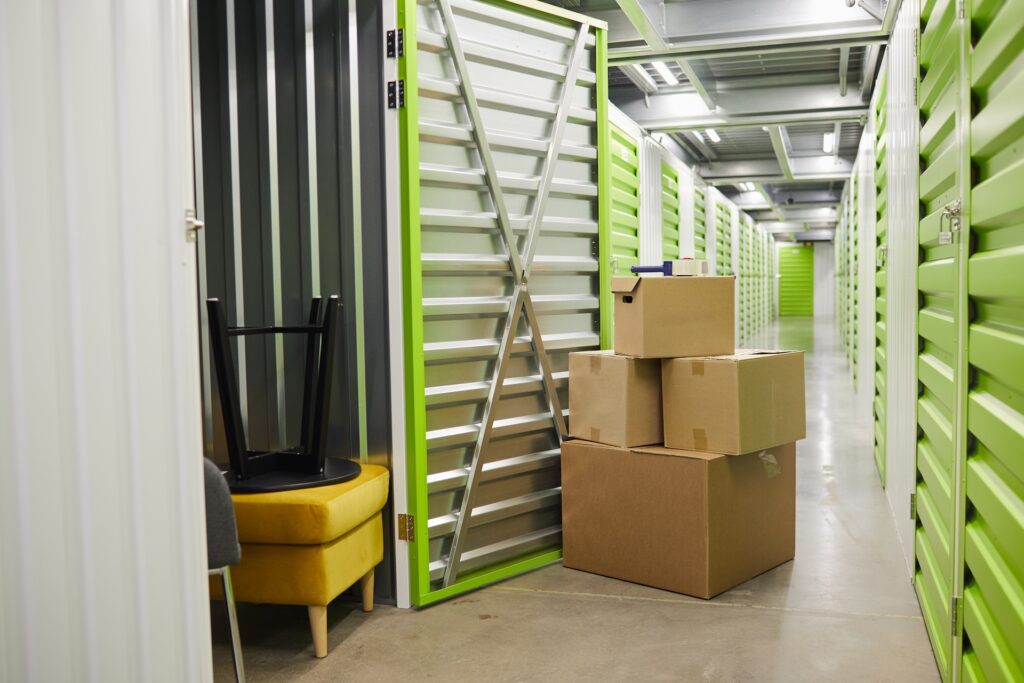For seasonal businesses—whether retail, agriculture, or event-based—managing inventory fluctuations is a constant challenge. From holiday decor suppliers to landscaping companies, these businesses experience peak demand during specific periods and must store excess stock efficiently during off-seasons.
Low-cost storage units provide a flexible, cost-effective solution for seasonal inventory management, helping businesses optimize space, reduce overhead costs, and maintain product quality.
This article explores how storage units support seasonal businesses, key considerations when selecting storage, and best practices for efficient inventory management.
Why Seasonal Businesses Need Storage Units
1. Managing Peak vs. Off-Season Inventory
Seasonal businesses often stockpile inventory months in advance but lack year-round space to store it. A storage unit acts as an extension of the warehouse, allowing businesses to:
- Store off-season products without cluttering primary retail or operational spaces.
- Keep bulk purchases secure until peak demand arrives.
2. Reducing Overhead Costs
Renting additional warehouse space can be prohibitively expensive. Storage units offer:
- Short-term leases, avoiding long-term rental commitments.
- Lower costs compared to commercial real estate leases.
- Scalability—businesses can upsize or downsize as needed.
3. Protecting Inventory Quality
Certain products (e.g., holiday decorations, seasonal apparel, gardening supplies) require proper storage conditions to prevent:
- Moisture damage (e.g., mold on textiles).
- Temperature fluctuations (e.g., melting candles or warped materials).
- Pest infestations (e.g., rodents damaging packaging).
Climate-controlled storage units mitigate these risks.
4. Improving Operational Efficiency
- Free up retail or workspace for in-season operations.
- Streamline inventory retrieval with organized storage systems.
- Reduce time wasted searching for misplaced off-season stock.
5. Facilitating Sales and Promotions
Businesses can store clearance or overstock items in storage units and reintroduce them during flash sales or next season.
Choosing the Right Storage Unit for Seasonal Inventory
Not all storage units are suitable for business inventory. Consider these factors:
1. Size Requirements
- Small (5×5 to 5×10 ft) – Ideal for documents, small retail overstock, or promotional materials.
- Medium (10×10 to 10×15 ft) – Fits seasonal decor, apparel, or gardening tools.
- Large (10×20 ft or more) – Accommodates large equipment (e.g., holiday displays, landscaping machinery).
2. Climate Control
Essential for:
- Electronics (e.g., holiday lighting).
- Wooden or fabric items (e.g., furniture, costumes).
- Perishable goods (e.g., seasonal gourmet foods in temporary storage).
3. Accessibility
- 24/7 Access – Crucial for businesses needing to retrieve stock unexpectedly.
- Drive-Up Units – Convenient for loading/unloading bulky items.
4. Security Features
- Surveillance Cameras – Deters theft.
- Individual Alarms – Provides added protection for high-value inventory.
- Gated Access – Restricts entry to authorized personnel only.
5. Lease Flexibility
- Month-to-month rentals accommodate unpredictable demand shifts.
- Some facilities offer business discounts for long-term contracts.
Best Practices for Storing Seasonal Inventory
Proper organization ensures quick access and preserves product quality.
1. Categorize and Label Inventory
- Group items by season, product type, or demand frequency.
- Use clear bins and detailed labels (e.g., “Winter 2024 – Holiday Lights”).
2. Implement an Inventory Management System
- Use barcode scanners or digital spreadsheets to track stock.
- Update records when moving items in/out of storage.
3. Optimize Space with Smart Packing
- Disassemble large items (e.g., artificial Christmas trees) to save space.
- Use vertical shelving to maximize floor space.
- Place frequently accessed items near the front.
4. Protect Items from Damage
- Wrap fragile goods in bubble wrap or packing paper.
- Use pallets or plastic sheeting to keep boxes off the floor.
- Add silica gel packets to prevent moisture damage.
5. Schedule Regular Check-Ins
- Inspect stored inventory quarterly for pests, leaks, or temperature issues.
- Rotate stock to ensure older items are sold first (FIFO method).
Industries That Benefit Most from Storage Units
1. Retail (Holiday & Seasonal Goods)
- Stores selling Halloween costumes, Christmas decorations, or summer beachwear.
- Off-season storage prevents overcrowding in backrooms.
2. Landscaping & Outdoor Services
- Equipment like lawnmowers, snowblowers, and patio furniture needs off-season storage.
3. Event Planning & Decor Companies
- Wedding arches, seasonal centerpieces, and trade show displays require secure storage between events.
4. Agricultural Businesses
- Farmers storing harvest surplus or off-season tools.
5. E-commerce & Fulfillment Sellers
- Small businesses storing inventory before peak sales periods (e.g., Black Friday).
Cost-Saving Strategies for Seasonal Storage
1. Share Space with Other Businesses
- Split a large unit with a non-competing seasonal business (e.g., a Halloween store and a Christmas boutique).
2. Negotiate Long-Term Discounts
- Some facilities reduce rates for 6- or 12-month prepaid leases.
3. Use Portable Storage Containers
- Companies like PODS deliver containers to your location; you pack them, and they’re stored offsite.
4. Time Rentals Strategically
- Reserve units before peak seasons (e.g., rent in September for holiday inventory) to lock in lower rates.
Potential Pitfalls to Avoid
– Underestimating Space Needs – Running out of room mid-season disrupts operations.
– Ignoring Climate Control – Damaged inventory leads to lost revenue.
– Poor Organization – Wasting time searching for items cuts into productivity.
– Overlooking Insurance – Ensure stored business inventory is covered under your policy.
Conclusion
For seasonal businesses, these storage units are more than just extra space—they’re a strategic tool for managing inventory efficiently and cost-effectively. By selecting the right unit, implementing smart storage practices, and leveraging flexible leasing options, businesses can:
- Reduce overhead costs.
- Protect inventory quality.
- Improve operational readiness for peak seasons.
Whether you’re a retailer, landscaper, or event planner, integrating storage units into your inventory management plan ensures you’re always prepared for seasonal demand—without the burden of year-round storage expenses.
Invest time in planning your storage strategy today, and reap the benefits of a smoother, more profitable seasonal business cycle.

